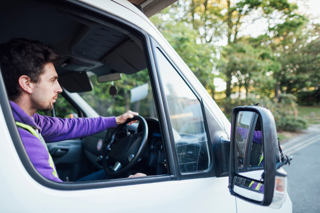The launch of Ford’s ‘Elephant in the Transit’ mental health campaign struck a chord with me.
Combining the million plus miles driven each day in Ford Transit vans alone with assertions like psychotherapist Stuart Hannah’s that forward-facing journeys are ideal settings for mental health conversations is an absolutely correct link to make.
Aiming to break the silence and encourage men in particular to open up, Ford and Time to Change’s suggestions to remain alert to changes in other people’s demeanours, maintain an approachable manner and listen without judging are excellent facilitators that the therapeutic nature of travelling by road is conducive for.
Fleet managers can perhaps do more to encourage and train their personnel to be receptive to others’ low moods.
With mental health increasingly discussed in the media, it should certainly form part of ‘fit to drive’ decisions and general duty of care, just like eyesight and other health conditions and disabilities.
Conversely, a company vehicle or grey fleet driver opening up about their struggle with depression, anxiety or other challenges should be met with a willingness to assist.
From experience I have found that people who are anxious often prefer automatic gearboxes that help make driving less daunting in traffic queues, while manoeuvring and in other scenarios. Could flexibility within user-chooser policies accommodate this?
Motorists are legally obliged to inform the DVLA if mental health affects their ability to drive, but until medication is prescribed by a GP or professional, employees will often appreciably be inclined to keep their situation under wraps.
Of course, with alertness, calmness and judgement essential in keeping safe on the road, a job based primarily around driving a car or van isn’t suited to someone extremely anxious.
For daily commuters, though, organisations could promote car-sharing as a way to ensure that staff can get to work on days of lessened wellbeing.
Likewise, perhaps people scheduled to make occasional work journeys could share the driving with a colleague as a backup.
Many cars now feature drowsiness alerts, are equipped with sat nav and are fitted with other ADAS, all keeping at-work drivers safer behind the wheel, with telematics also providing potential insights into driver behaviour.
Rebecca Posner and the Transport Research Laboratory are involved in very positive work aimed at understanding the dynamic between transport and mental health and I keenly anticipate the latest reports from them and others.
Ford’s encouragement to open up seems to fly in the face of HR cultures that have a “don’t bring your personal problems to work” ethos but the reality is that full-time workers spend more time with colleagues than family or friends. Additionally, sharing challenges can strengthen teams. It certainly feels like the tide of change is gaining pace, so Ford and others’ initiatives are to be commended.
By Lee Wolstenholme, managing director of Vehicle Consulting



















Login to comment
Comments
No comments have been made yet.